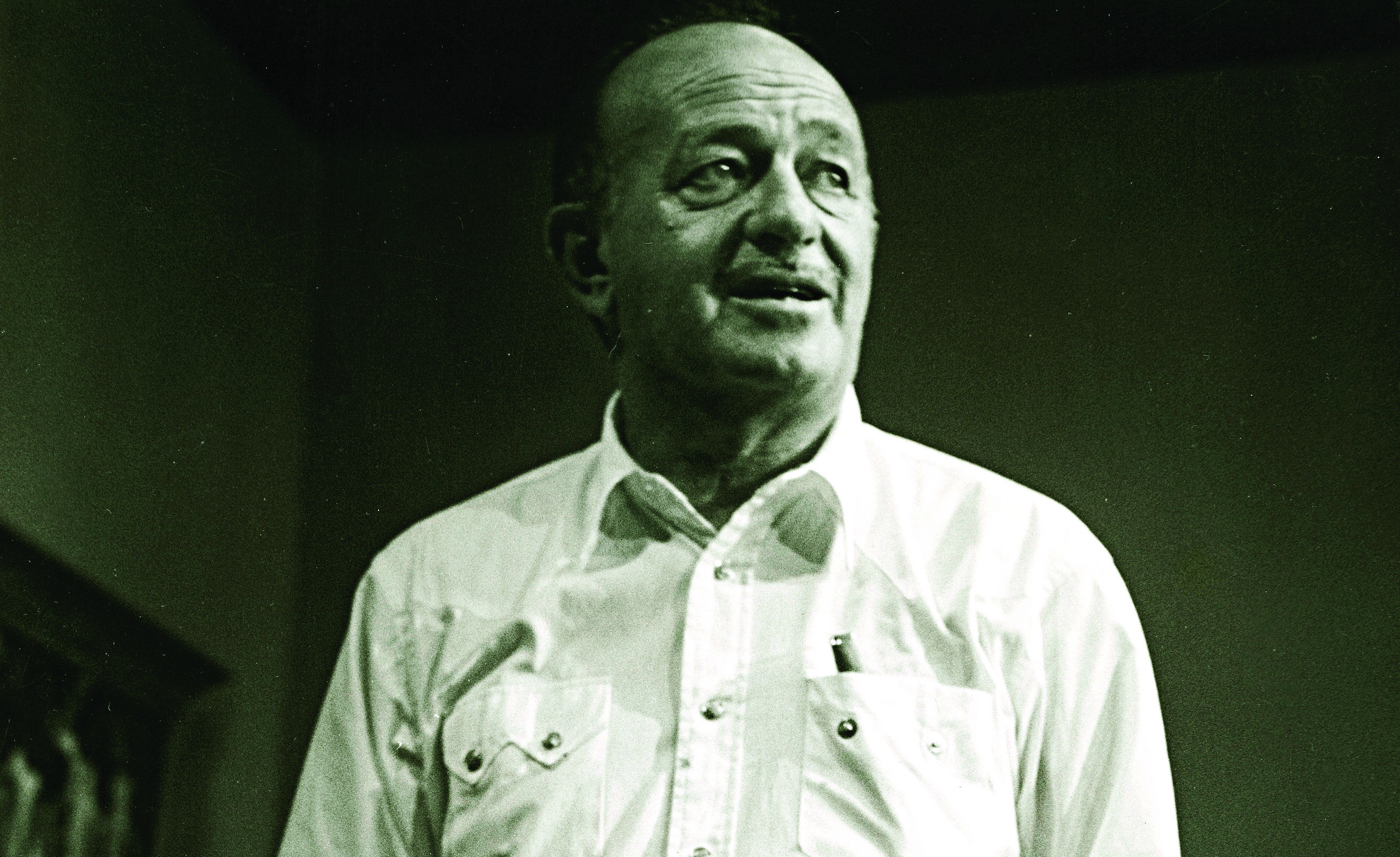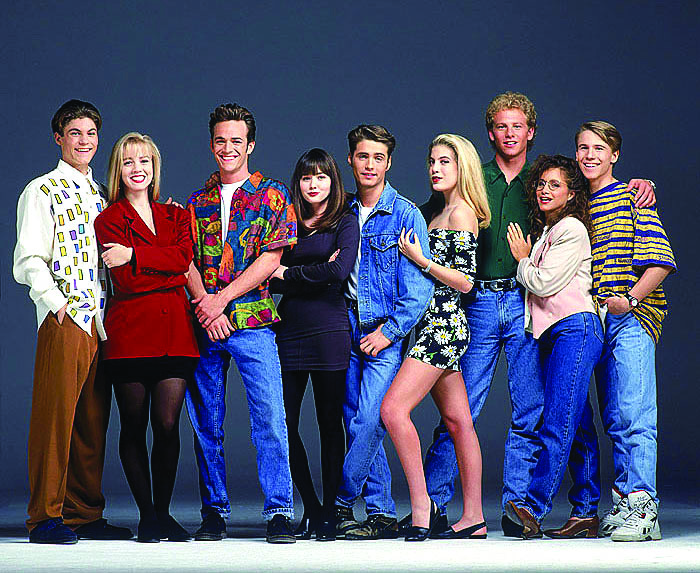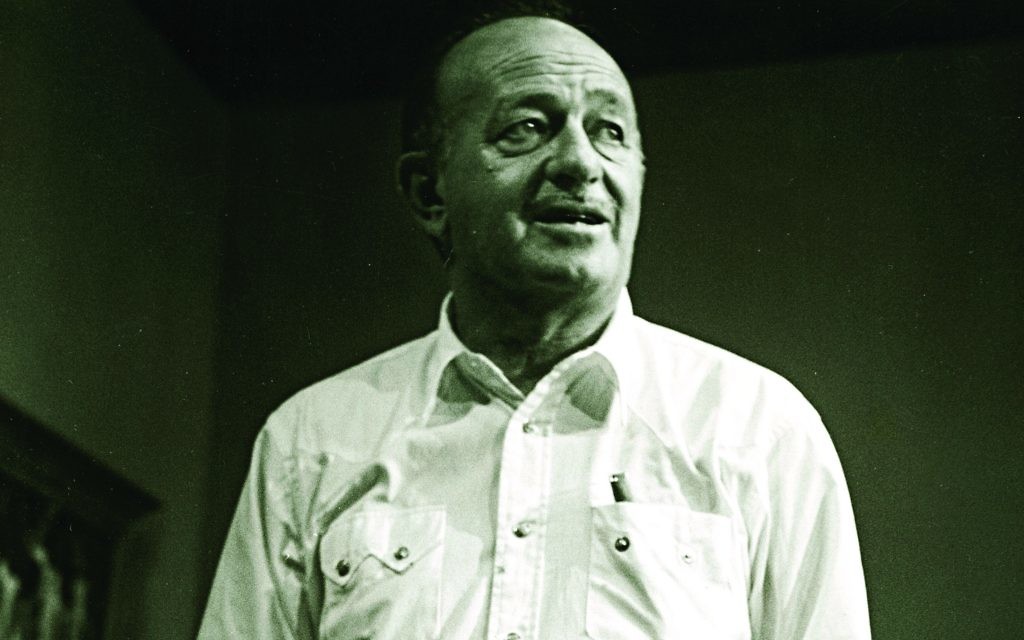Ben Hecht: The screewriter and his tragic daughter
Oscar-winner Ben Hecht was known for his movies. But, as Francine Wolfisz discovers, he also had tragedy in his life and played a leading role in alerting the American people to the Holocaust
From It’s A Wonderful World to Scarface, Casino Royale and Mutiny on the Bounty, Jewish-American screenwriter Ben Hecht was the Oscar-winning powerhouse behind more than 120 scripts during Hollywood’s Golden Era. Some of his best-known work, including Gone With The Wind and Hitchcock’s Notorious, was written by him without a screen credit.
The prolific writer became as much known for his writing talents as his efforts to create public awareness of the Holocaust and his staunch Zionist leanings. The latter triggered a British boycott of his work in the 1940s and 1950s after he urged Jewish activism against British forces in Palestine and the sabotaging of British property. Now the life of the illustrious Hollywood icon is explored through the real-life story of his tempestuous relationship with his daughter Jenny Hecht, an actress who against her father’s wishes joined the avant-garde troupe Living Theatre and lived with them in a commune in New York. She died from a drug overdose in March 1971, aged 27.
The Screenwriter’s Daughter, which opens this week at Leicester Square Theatre, is written by Larry Mollin, who made his name writing scripts for CHiPs and Knight Rider before working his way up alongside Aaron Spelling to executive producer of Beverly Hills 90210.
Get The Jewish News Daily Edition by email and never miss our top stories Free Sign Up
JN: What moved you to write a play based on Ben Hecht’s life? What was it about the dynamic between Hecht and his daughter that intrigued you?
LM: I saw Living Theatre perform at the Brooklyn Academy of Music in 1968. I went back and saw all the shows twice. They were a big influence on me as a young actor-playwright-director at that time. I became infatuated with Jenny Hecht; her beauty, bravery and talent. In 2005, as a member of the Writers’ Guild, I noticed Ben Hecht’s name on a list of unclaimed checks. It really irked me that one of the greatest writers could be so forgotten by his own peers. I started researching and realised there was a father-daughter story that was just waiting to be written. I wanted them to be remembered.
JN: What are your thoughts on Hecht’s Zionist leanings? How would you sum up his contribution to helping the Jews of Europe during the Holocaust? LM: In researching Ben you realise he was not a particularly observant practising Jew. He was, however, a defender of truth and fairness and the underdog. It was maddening to him that the US government under President Franklin D Roosevelt did not let Americans know the real story [about the Holocaust]. He was told by community leaders, such as the revered Rabbi Stephen Wise, that it was best to leave it alone. They were worried the average American would think it was a Jewish war and it would undermine the public’s support of US involvement in Europe. That drove Ben to put on a pageant at Madison Square Garden for thousands of people to see called We Will Never Die. It exposed the extermination going on and ultimately embarrassed the US government into recognising the Holocaust and passing the War Refugees Act. Ben became Zionist in the same manner. He was not super-religious in any way. He just hated injustice and hypocrisy. He could not believe refugee European Jews were not allowed to go to Israel after the Second World War because of the White Paper, which blocked their settling in the homeland by British law. So he financed a boatload of arms bound for Israeli rebels in the Haganah, who were fighting British rule in Palestine. In a sense, he was funding terrorists who he considered freedom fighters.

JN: What would you say was Ben Hecht’s greatest achievement? LM: In the play, Ben says that his daughter Jenny was his greatest accomplishment. The conceit is that he wrote this play for his daughter so she would be recognised as an iconic and influential figure of the turbulent 1960s – a rebel who helped to bring about social change. But what he did to bring awareness to the Holocaust took incredible courage in going against the mainstream and against his own people. He brought about change. It is ironic that Rabbi Stephen Wise, FDR’s close ally, is remembered as a rescuer but Ben is not. This play helps bring the real story to light.
JN: It has been claimed that Hecht never worked more than eight weeks on a script. Do you think he would have liked working in today’s television world?
LM: Ben was a very fast writer. He worked on a number of projects at once and had young writers around to help with the clerical duties. Ben would have loved the pace of television as long as the money was great. He wrote for the dollar and so many times eschewed credit to get paid more. He was not a Hollywood creature and looked down on the crassness of the business there. His place on the west coast was 60 miles south of Hollywood in Oceanside, California. He was a New Yorker and a bit of a snob. The one Oscar he won for Underworld he kept as a doorstop in his New York apartment.
JN: Can you share some anecdotes from your time on Knight Rider and working with David Hasselhoff? LM: I only did 13 episodes of Knight Rider. It was the beginning of David’s career and he was difficult to write for, because he was not very experienced as an actor and could not handle a lot of dialogue. To the staff he was a bit of a stiff. The fun was writing for KITT, the car voiced by a magnificent actor, William Daniels. I was happy when I got a chance to go to Columbia to co-executive produce a surfing comedy, The New Gidget. My partner, Harry Ackerman, was a giant in the business. He had brought Lucille Ball to Hollywood and started her show for CBS while president of the network. He was a wonderful mentor and should be remembered for all he did in the early days of TV.
JN: Your biggest break was working on Beverly Hills 90210 alongside Aaron Spelling during the show’s heyday. Can you share some anecdotes about working on the show?

LM: Chuck Rosin, who was executive producer at the time, liked a spec script I had written called Borderline Normal (which was made into a film in 2000). Even though my credits were action TV, he gave me a chance to do a teen relationship drama based on that script. We wrote and produced 32 hours in a season – 128 episodes in four years. No-one has ever done that since. I learned a lot about casting from Spelling. He had a discerning eye for talent and the little things. He would veto actors for small imperfections – “eyes too close together, blonde men cannot be leading men.” Actresses were put under the same microscope. He was a star-maker who would say: “Actresses – you buy them shoes and they walk away.” He was a brilliant and tough taskmaster who was loyal to you as long as he needed you and then would viciously go against anyone who left him to stop their success if he could.
JN: How did 90210 pave the way for teen dramas? LM: Beverly Hills 90210 set the way for teen dramas by focusing first on the kids and second on the adults. It was the other way around until then. The show understood the romantic triangle and resonated internationally because it portrayed ordinary kids that anyone could relate to living extraordinary lives in Beverly Hills.

Thank you for helping to make Jewish News the leading source of news and opinion for the UK Jewish community. Today we're asking for your invaluable help to continue putting our community first in everything we do.
For as little as £5 a month you can help sustain the vital work we do in celebrating and standing up for Jewish life in Britain.
Jewish News holds our community together and keeps us connected. Like a synagogue, it’s where people turn to feel part of something bigger. It also proudly shows the rest of Britain the vibrancy and rich culture of modern Jewish life.
You can make a quick and easy one-off or monthly contribution of £5, £10, £20 or any other sum you’re comfortable with.
100% of your donation will help us continue celebrating our community, in all its dynamic diversity...
Engaging
Being a community platform means so much more than producing a newspaper and website. One of our proudest roles is media partnering with our invaluable charities to amplify the outstanding work they do to help us all.
Celebrating
There’s no shortage of oys in the world but Jewish News takes every opportunity to celebrate the joys too, through projects like Night of Heroes, 40 Under 40 and other compelling countdowns that make the community kvell with pride.
Pioneering
In the first collaboration between media outlets from different faiths, Jewish News worked with British Muslim TV and Church Times to produce a list of young activists leading the way on interfaith understanding.
Campaigning
Royal Mail issued a stamp honouring Holocaust hero Sir Nicholas Winton after a Jewish News campaign attracted more than 100,000 backers. Jewish Newsalso produces special editions of the paper highlighting pressing issues including mental health and Holocaust remembrance.
Easy access
In an age when news is readily accessible, Jewish News provides high-quality content free online and offline, removing any financial barriers to connecting people.
Voice of our community to wider society
The Jewish News team regularly appears on TV, radio and on the pages of the national press to comment on stories about the Jewish community. Easy access to the paper on the streets of London also means Jewish News provides an invaluable window into the community for the country at large.
We hope you agree all this is worth preserving.
-
By Brigit Grant
-
By Laurent Vaughan - Senior Associate (Bishop & Sewell Solicitors)
-
By Laurent Vaughan - Senior Associate (Bishop & Sewell Solicitors)
-
By Laurent Vaughan - Senior Associate (Bishop & Sewell Solicitors)
-
By Laurent Vaughan - Senior Associate (Bishop & Sewell Solicitors)






















